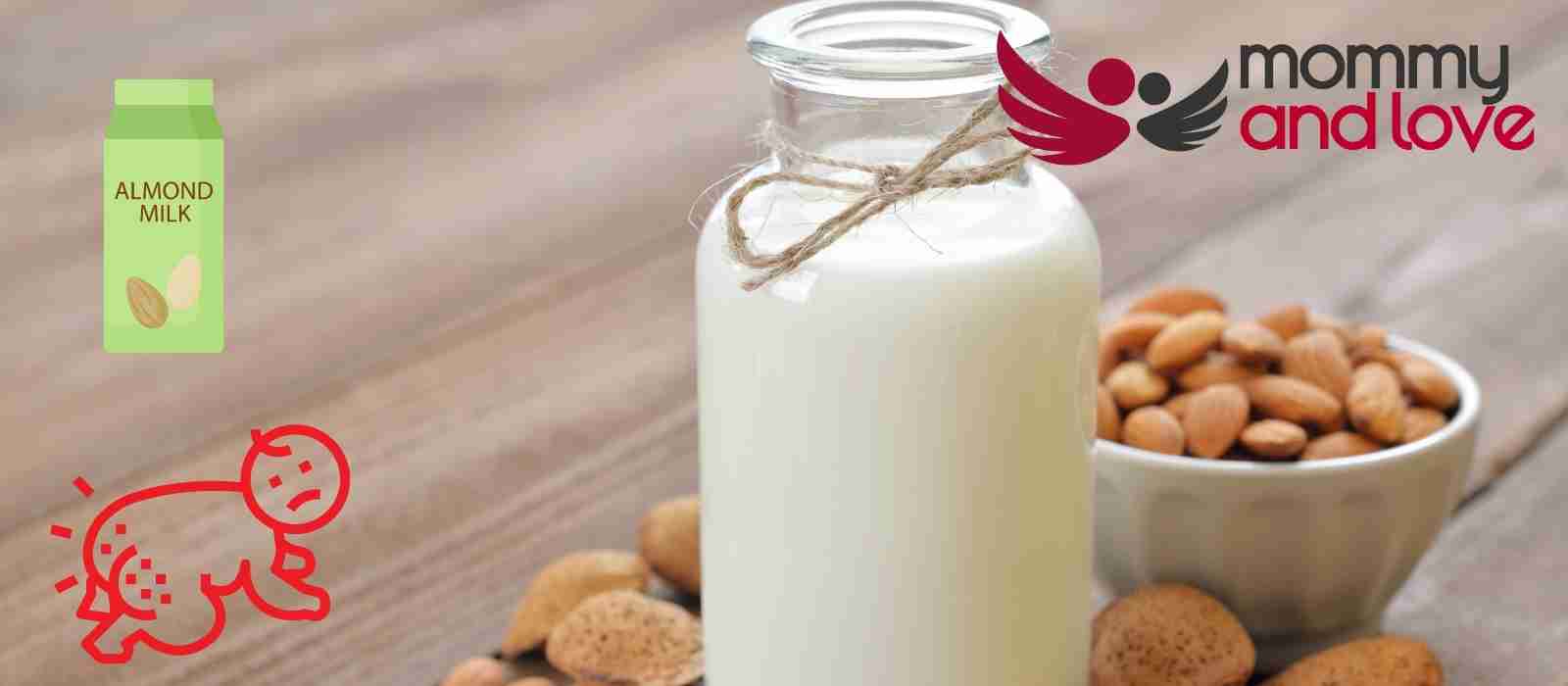In recent months, parents have begun posting online about a potential connection between the consumption of almond milk and rashes. It is widely recognized that certain foods can cause a reaction in babies and toddlers. It is possible that some babies are just sensitive to almonds, which would explain their allergic reaction.
What is almond milk?
The main ingredients of almond milk are ground almonds and water, but other ingredients can also be used. This product is naturally dairy-free, making it one of the milk products suitable for vegans and those with dairy and animal milk products allergies or lactose intolerances. Other vegans prefer to drink a cup of soy milk. Another option is oat milk.
Almonds are blended with water during the processing, then strained to remove the pulp. The result is a smooth liquid.
Although almond milk is fairly easy to make at home, most people prefer to buy it premade. To improve flavor, texture, and shelf life, most commercially-made contain thickeners, high sugar content, preservatives, and flavorings.
How does almond milk compare to cow’s milk?
Nutritionally, almond milk and whole cow’s milk are similar. That’s because almond milk is a synthetic product meant to taste like normal milk. Cow’s milk and almond milk have virtually the same fat and salt contents. Despite the fact that cow’s milk has more protein, it’s still not enough to make a significant difference in your diet.
Additionally, almond milk is a healthier choice for those who are lactose intolerant since it contains vitamin D, which cow’s milk does not. Cow’s milk can also cause diaper rash.
Is almond milk suitable for babies?
No. For babies under 12 months, breast milk, formula, and water in small amounts (less than 2-4 oz a day) should be the only liquids they receive in their sippy cup, even if they are already eating solids.
On her first birthday, your child can drink almond milk as she is now a toddler. It’s fine to do so as long as you know this milk does not contain the necessary calories, fats and protein we like to see in plant-based milk for children. Fortified soy or pea milk would be a better choice.
As developing babies need specific vitamins, calcium, sugar, fat and nutrients that breast milk and formula milk provide, almond milk or even soy should not be used as a substitute or supplement for breastfeeding or formula.
Can almond milk make a baby sick?
Yes. Nut milk such as almond milk may cause a reaction in babies, so always consult your doctor or pediatrician before you let your kids drink almond milk.
Babies should not consume more than 16 to 24 ounces of milk other than breast milk per day once they are 1 year old. Toddlers over the age of one should get most of their nutrition from food and not drink liquids that are not balanced.
How do I know if my baby is allergic to almond milk?
Signs and symptoms of an allergy may include:
- Diarrhea
- Vomiting
- Itching
- Eczema or hives
- Trouble breathing
- Nausea
- Abdominal pain
- Wheezing
- Anaphylactic reactions
You should seek medical attention immediately if you notice anaphylaxis symptoms.
Does almond milk cause diaper rash?
There is no conclusive proof that almond milk can cause bad diaper rash. However, if a child already has one or is suffering from eczema, an allergy to almonds might exacerbate the condition.
All tree nuts, including almonds, are considered common allergens. One of the most common signs of a nut allergy is skin irritation in a form of a horrible rash or hives. So if your baby already has rashes, it will become worse.
Treat the rashes as soon as they appear. Apply an ointment or cream to create a barrier between your baby’s bottoms and his stool or urine. Changing diapers often also help as well as removing anything acidic from the diet of your little one. If these rashes don’t heal after 3 days, it is time to seek professional medical advice.
Takeaway
While it is very uncommon for almond milk to cause rashes in the diaper region, in most cases, it can make rashes worse especially if your little one has allergies to almonds and other tree nuts.
If you are concerned about your baby’s health or the potential of developing an allergy, consult with your pediatrician or doctor before introducing any new foods into your baby’s diet.




